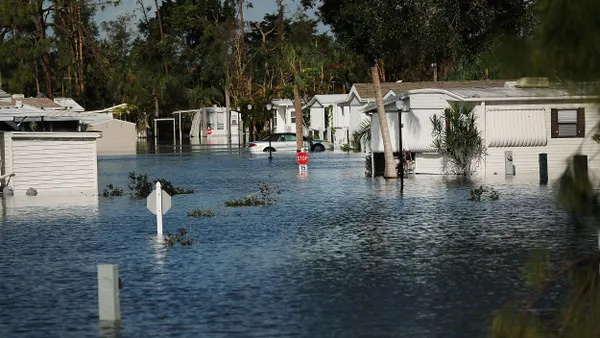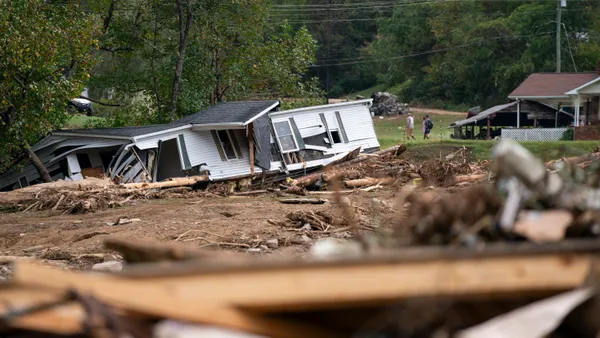Dive Brief:
-
To achieve social and economic equity goals, organizations should focus on tightening policies around qualifications and livable wages for employees and contractors, according to a new guide from Inclusive Economics and the Bloomberg Philanthropies American Cities Climate Challenge.
-
Previous attempts to invest in education and workforce education actually backfired, driving down wages and trapping workers in dead-end jobs, according to Betony Jones, founder of research and consulting firm Inclusive Economics.
-
Governments and utilities that want to increase economic equity must find ways to make jobs more selective, which spurs income creation, without causing those jobs to become exclusionary toward disadvantaged populations, Jones said.
Dive Insight:
A growing number of organizations have set equity goals in tandem with their decarbonizations targets. But making good on those goals, researchers say, will require more than funding and job training.
Those looking to use the energy transition to spur economic recovery could benefit from the lessons of 2009's American Recovery Act, according to Jones. While the American Recovery Act strove to make job training and new career paths more readily available to economically disadvantaged communities, Jones said, it largely failed because it focused on funding and education.
"Typically what we saw during the American Recovery Act, was that there was tons of investment in short-term training, and that led to a lot of dead-end jobs," Jones said. "It flooded the market and drove down wages, and it just didn't serve workers to do that."
To prevent this from happening again, Jones said, cities and utilities with equity goals need to focus less on supply-side initiatives like job training, and more on the demand side of the market by establishing policies that promote long-term, gainful employment.
This could still include job training, Jones said, but will require greater emphasis on less-specific, longer-term skills training. For example, rather than training to work as a solar installer, workers might train to be an electrician.
But organization also need to work to "raise the floor" on labor standards to improve job quality, Jones said. This could mean requiring contractors on renewable energy projects to pay livable wages, or it could mean requiring higher levels of certification for the workers themselves.
Increasing the level of qualifications required for clean energy jobs may seem counter-intuitive, but when jobs get more selective, pay tends to increase, Jones said. Balancing selectivity with removing barriers to entry so jobs do not become exclusionary, is what's required to ensure the clean energy transition is both economical, and socially just, she said.
Similar conclusions are highlighted by a separate series of articles, released last week by the UC Berkeley Center for Labor Research and Education. Excessive focus on job training, the declining power of unions and other trends over the last few decades mean that green energy jobs are, in many cases, not the quality, family-supporting jobs still available in the fossil fuel industry, according to Carol Zabin, director of the Green Economy Program at the UC Berkeley Labor Center. But it doesn't necessarily have to be that way, Zabin said.
Unlike other industries, construction is well positioned to balance the tension between selectivity and exclusivity thanks to that industry's well-developed apprenticeship model, Zabin said. In many highly-paid, selective fields such as healthcare, obtaining the necessary qualifications requires years of effort and hundreds of thousands of dollars in costs that can exclude historically disadvantaged groups, Zabin said. But the apprenticeship model makes it possible to earn income while obtaining job skills, maintaining selectivity while removing barriers to entry, according to Zabin, who has collaborated with Jones on labor market research in the past.
What's important, Zabin said, is for utilities and governments to realize that while infrastructure spending and the clean energy transition could have a revitalizing effect on the economy, that won't necessarily happen without deliberate policy choices at the state and federal level, as well as in the board room.
"There are a lot of clean energy jobs that are crappy jobs, and they will remain crappy jobs" without deliberate action, Zabin said. "You cannot assume that clean energy jobs are necessarily good jobs."











